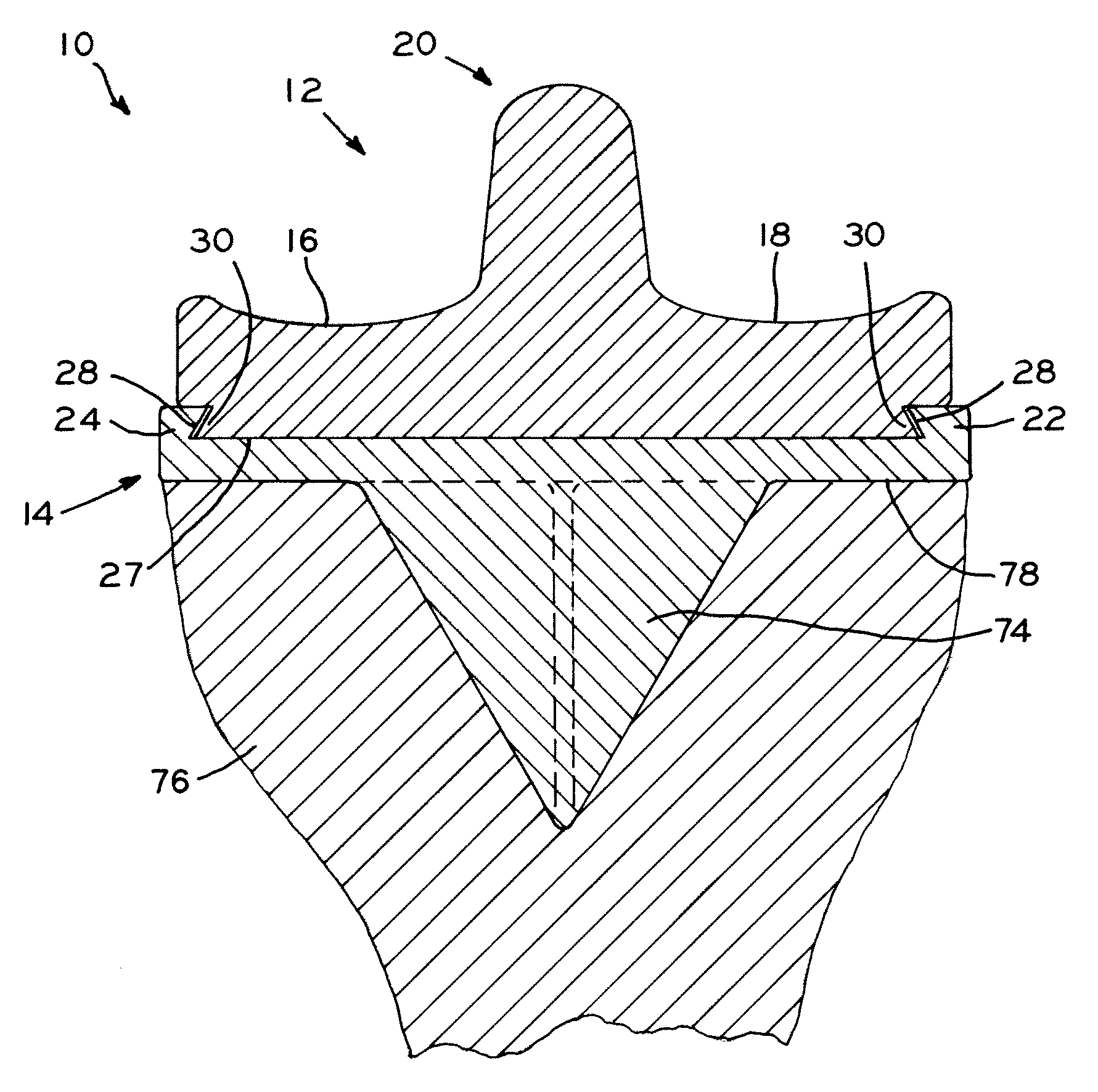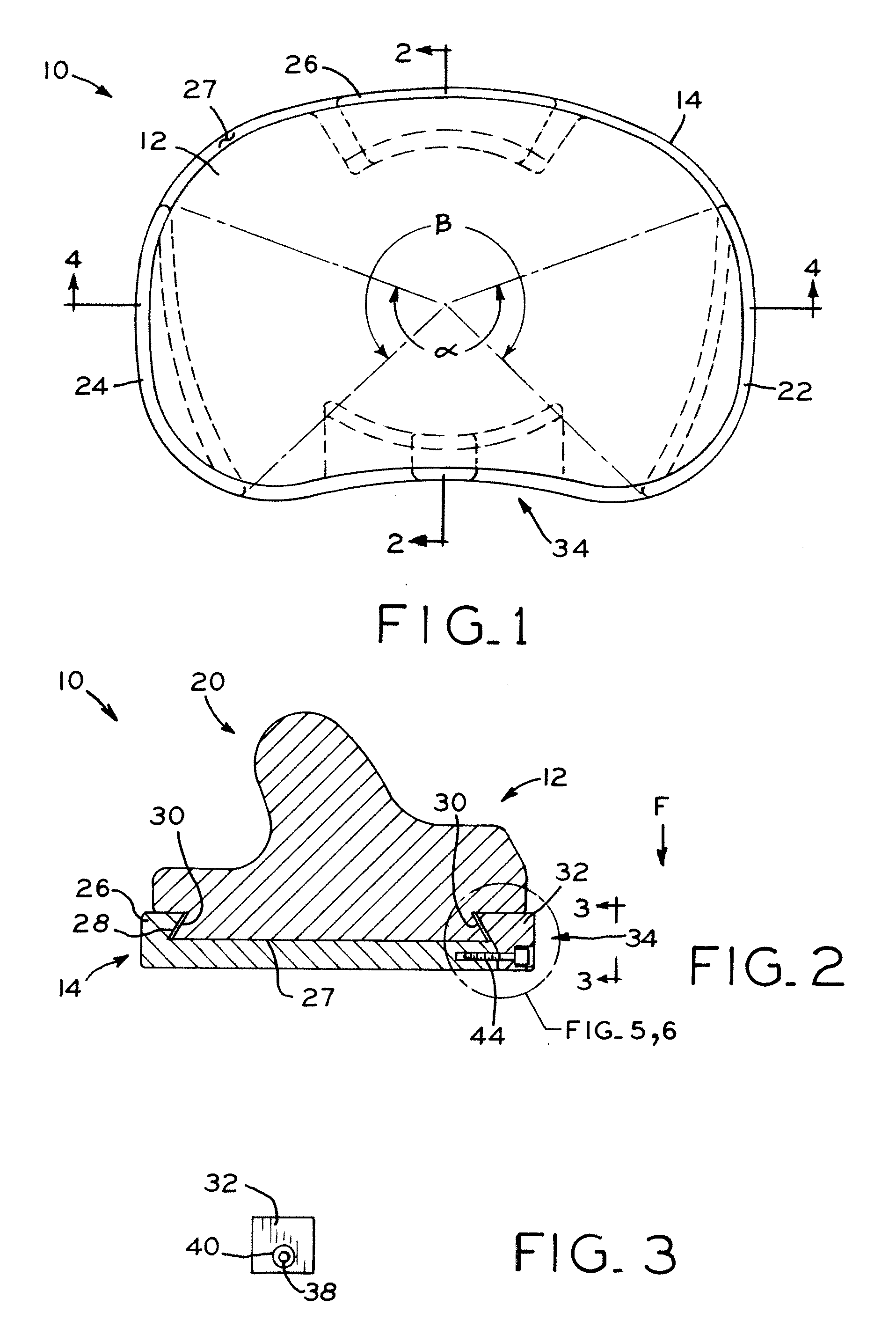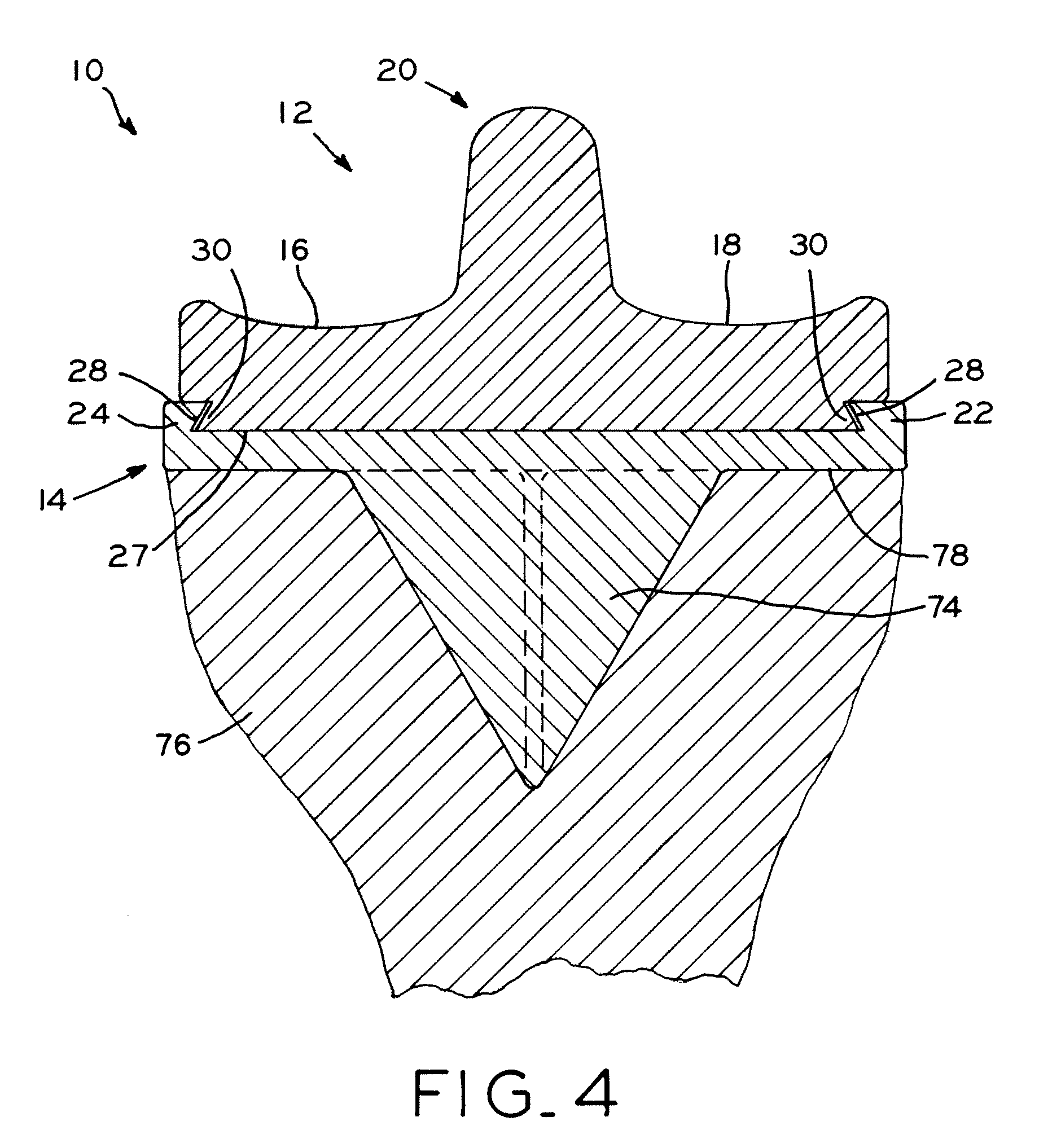Transiently mobile tibial engagement
a tibial bone and mobility technology, applied in the field of orthopaedic prostheses, to achieve the effect of preventing or minimizing the tibial bone component, and maximum tibial bone coverag
- Summary
- Abstract
- Description
- Claims
- Application Information
AI Technical Summary
Benefits of technology
Problems solved by technology
Method used
Image
Examples
Embodiment Construction
[0025]Referring to FIGS. 1, 2, and 4, tibial prosthesis 10 is shown in an assembled condition and includes articulating component 12 and tray component 14. While shown and described herein with specific reference to a right knee application, tibial prosthesis 10 may also be configured for use in a left knee application. Referring to FIG. 4, articulating component 12 includes a pair of opposing, concave articulating surfaces 16, 18 that are configured for articulation against opposing convex condyles of a femur or femoral prosthesis (not shown). Tibial eminence 20 extends upwardly between opposing articulating surfaces 16, 18. While shown and described herein as including tibial eminence 20, it is envisioned that tibial eminence 20 may also be absent.
[0026]Referring to FIGS. 2 and 4, rails 22, 24, 26 project upwardly from superior surface 27 of tray component 14 and define interior dovetail-shaped grooves 28 that interact with corresponding dovetail projections 30 on articulating com...
PUM
 Login to View More
Login to View More Abstract
Description
Claims
Application Information
 Login to View More
Login to View More - R&D
- Intellectual Property
- Life Sciences
- Materials
- Tech Scout
- Unparalleled Data Quality
- Higher Quality Content
- 60% Fewer Hallucinations
Browse by: Latest US Patents, China's latest patents, Technical Efficacy Thesaurus, Application Domain, Technology Topic, Popular Technical Reports.
© 2025 PatSnap. All rights reserved.Legal|Privacy policy|Modern Slavery Act Transparency Statement|Sitemap|About US| Contact US: help@patsnap.com



